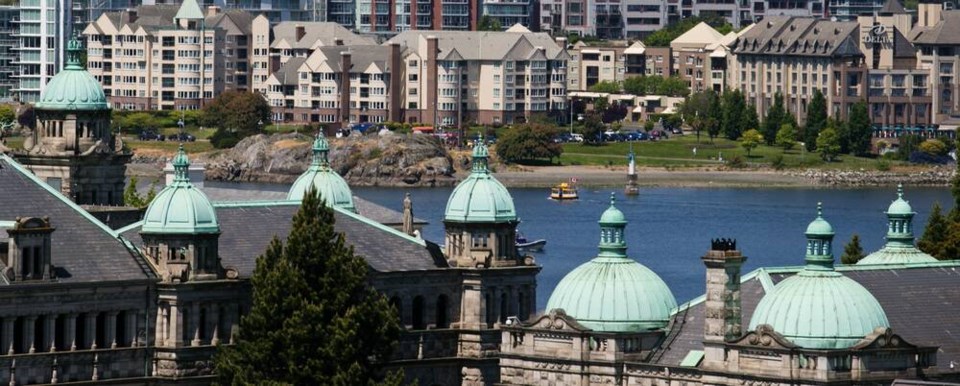Contrary to all the rhetoric, the “big money” era of B.C. politics is most certainly not dead. It’s flourishing, has a secure future and the money will get bigger than ever.
The only difference is that the big money is now your money.
Final touches were applied this week to the lengthy project of driving well-funded interest groups out of the political financing picture and replacing them with on-going taxpayer subsidies.
The second part is exactly what the NDP said they had no intention of doing, or at least do only for a little while.
Political funding overall is a lot cleaner than it once was, but the subterfuge it took to get it done rankles.
This is the wrong reaction. It can lead to blood pressure problems. A healthier approach is to graciously concede you’ve been played, but it’s for a good cause.
Instead of being bitter, acknowledge the virtuosity that went into it this grand bait-and-switch caper. The more you dwell on the cleverness of it, the less gullible you will feel.
The fact that so few people care about the issue proves how adept the government was in pulling it off. Earlier hearings drew barely 100 submissions and most of them supported subsidizing political parties.
The final act in the “Get Big Money out of Politics” morality play this week involved a law to lock in public financing of political parties for all time on an escalating basis.
The show opened four years ago, when the NDP wanted to clamp down on B.C.’s unseemly no-limit political donation game, which saw corporations and big unions shower their respective favourite political parties with millions every year.
Then-premier Christy Clark’s only defence was to claim that the NDP wanted to raid the treasury and start funneling money to political parties to make up the difference.
That was inevitable and obvious right from the start. But admitting it would have taken some of the gloss off the crusade to banish big money.
So NDP leader John Horgan reacted with horror to the suggestion. Then they overthrew the Liberals, took power and did the arithmetic. Putting strict limits on donations blew a huge hole in the major parties’ budgets.
Other than gutting party machines, replacing the lost revenue with public funds was the only alternative. So the NDP banned union and corporate donations, and at the same time backtracked and created the subsidy. But only for a while, they said. The “transitional” system involved a per-vote subsidy every year to parties that met a minimum threshold. It would ramp down over the term, just to smooth political parties’ ways out of the big money era. “Just temporary,” the government stressed. After that, a committee of MLAs would review it and decide.
To further smooth the way, a separate lucrative subsidy was granted to cover half the eligible parties’ election expenses.
After a few years of subsidies that allowed politicians to live free of the big money taint with minimal impact on their parties’ bottom lines, the committee naturally arrived at the conclusion that public financing of political parties was a good idea.
The money was delivered on a per-vote basis, starting at $2.50 and declining to $1.75 during the “transitional” period.
Total to date is more than $16 million. The NDP has collected almost $7 million since the start of 2018 and Liberals got about $6.5 million. B.C. Greens, which refused corporate and union donations even when they were legal, have received $2.7 million. A few thousand more went to smaller parties.
After the 2020 election, another $7 million was paid in total to the eligible parties to cover half their campaign expenses.
The original bill in 2017 prompted heated debate as the opposition called it a cynical betrayal and a travesty of what was originally pitched. But B.C. Liberals have apparently warmed to the idea.
This week’s amendment cements the multi-million dollar annual subsidy into place, indexes it to inflation and drops any requirement to ever have to consider it again.
It progressed gracefully through the house in about 90 minutes over two days, with no arguments. So political parties can now “transition” away from union and corporate donations permanently, at our expense.



